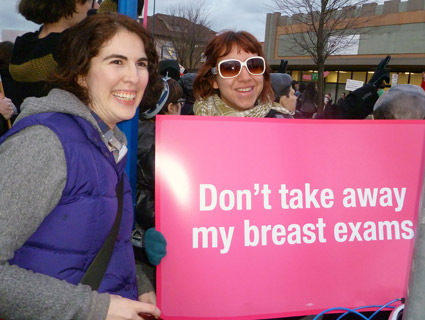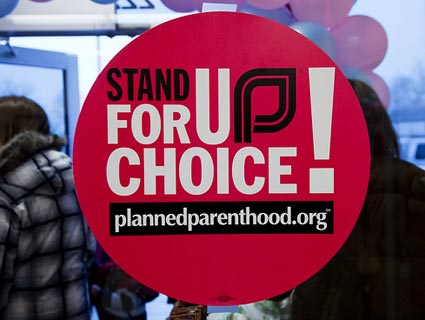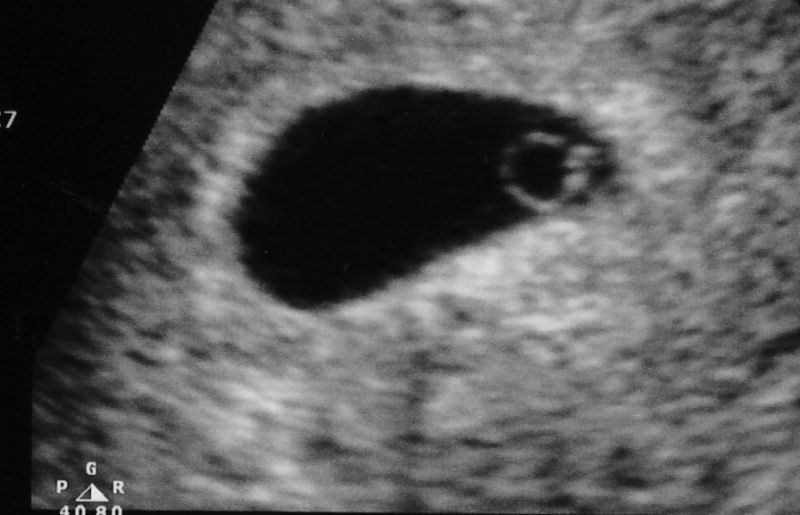Yesterday, hundreds of people rallied at the Columbus, Ohio, statehouse in support of the so-called “Heartbeat Bill,” the pending legislation that could crown Ohio as home of the strictest abortion law in the country. The law would, except in cases of extreme medical emergency, make it illegal to terminate a pregnancy once a fetal heartbeat can be detected, i.e., as early as six weeks after conception (i.e., probably before you’ve realized you’re pregnant). It’s so strict that even Ohio Right to Life isn’t supporting it, saying there’s no way it’s going to hold up in court, because it’s totally unconstitutional.
But the bill has already passed the House; now it’s up to the Senate, where Republicans outnumber Democrats more than 2-to-1. During the House hearing, proponents brought in two young pregnant women and gave them live ultrasounds in front of the committee. One fetus’s heartbeats rang out loud and clear for the benefit of the audience. The other’s was hard to make out. When I interviewed Democratic State Rep. Kathleen Clyde in June, she quipped, “I guess that fetus couldn’t testify that day.”
It’s been a rough couple months for choice in Ohio. As we reported in June, the new budget, which passed this summer, contained a provision to keep “unincorporated (read: mostly rural) counties from covering abortion in their employee insurance plans” except in cases of rape, incest, or danger to the woman’s life. “Another bans publicly funded hospitals from performing the procedure.” According to Ohio NARAL’s Kellie Copeland, that affected “pretty much all the public hospitals in the state.” Republican lawmakers said the measures keep taxpayer dollars from going toward abortions. Copeland says they didn’t, since taxpayer dollars were already banned from going toward abortions in Ohio; procedures at public hospitals already had to be paid with private funds.
So also in attendance at the Columbus rally was Ohio NARAL, which showed up to rain on the anti-choice parade. “In a state like Ohio where the unemployment rate has continued to grow over the past three months to 9.1 percent, politicians who ran on ideas to improve the economy have shifted their focus to creating a divisive agenda that attacks a woman’s right to choose,” NARAL’s Copeland said in a statement. NARAL says its supporters will stand outside the statehouse for a few hours every day the Senate is in session for the rest of the legislative year. If you live in Ohio and agree with them and are, like lots of people, unemployed, there’s a fun afternoon activity for you!















